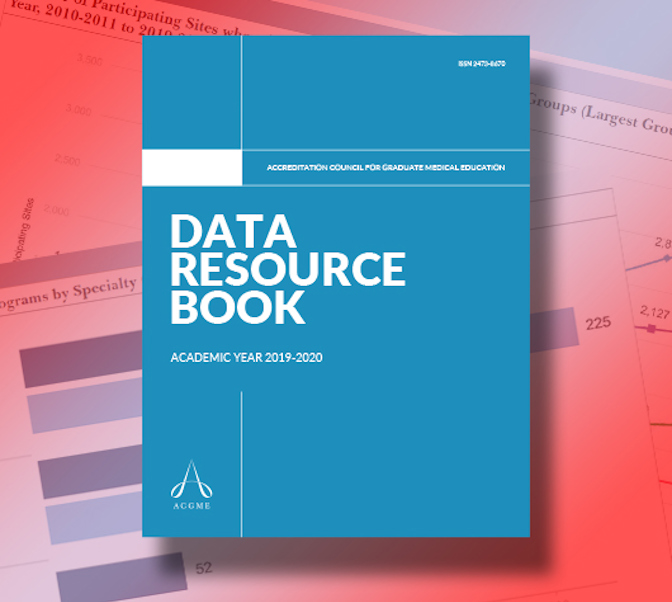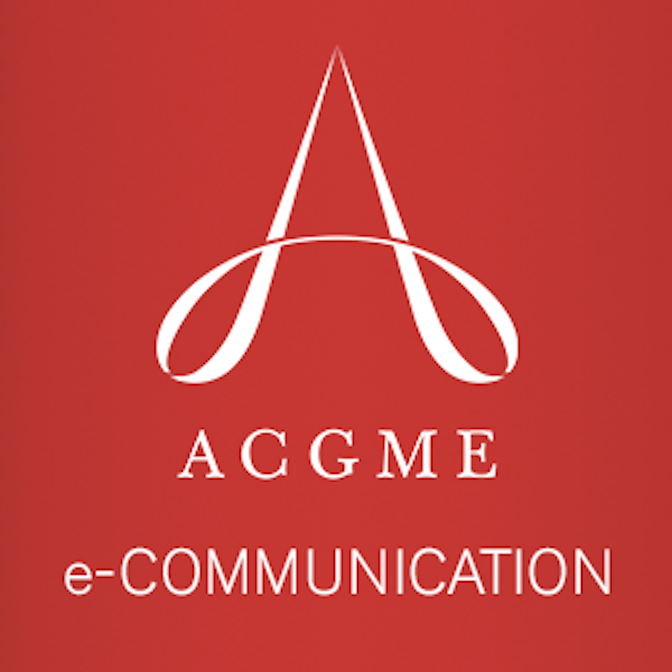ADS
August 23, 2021
This week's e-Communication includes information on the 2022 Annual Educational Conference Call for Abstracts, the latest issue of the Journal of Graduate Medical Education (JGME), and the designated institutional official (DIO) approval of program Annual Updates.
August 16, 2021
This week's e-Communication includes information on the designated institutional official (DIO) approval of program Annual Updates; improvements to the Direct Observation of Clinical Care (DOCC) app, Review and Comment, and calls for resident and public Review and Recognition Committee members.
April 19, 2021
This week's e-Communication includes Review and Recognition Committee News, a call for nominations for the 2022 ACGME Awards, information on how to access 2021 Annual Educational Conference materials through June 1, and more.
April 12, 2021
This week's e-Communication includes information on the transition to residency toolkit created by a consortium of medical education organizations; the Basics of Accreditation workshop registration information; and the Diversity, Equity, and Inclusion Officer Forum.
April 5, 2021
ACGME Releases 2019-2020 Statistics on Graduate Medical Education Programs and Resident Physicians

ACGME e-Communication - July 27, 2020
This edition of the weekly e-Communication includes information on updated COVID-19-related Frequently Asked Questions, new recordings available in Learn at ACGME, and resident and public Review and Recognition Committee information.

ACGME e-Communication - July 20, 2020
This edition of the ACGME e-Communication includes Review and Recognition Committee news, information on Clinical Learning Environment Review (CLER) Site Visits, and nomination solicitations for public and resident Review Committee members.

ACGME e-Communication - June 29, 2020
This edition of the ACGME's e-Communication includes information on ACGME Board actions, the new Emergency and Non-Emergency Category designations for programs dealing with an influx of COVID-19 patients, calls for resident and public members for Review Committees, and more.

ACGME e-Communication - June 29, 2020
This edition of the ACGME's e-Communication includes information on ACGME Board actions, the new Emergency and Non-Emergency Category designations for programs dealing with an influx of COVID-19 patients, calls for resident and public members for Review Committees, and more.


